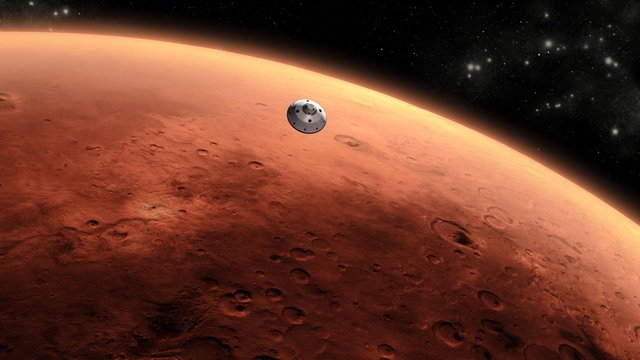Life on Mars? Answers appear close as scientists aim to find source of methane gas detected on planet
Scientists have begun an experiment which could turn out to prove the existence of life on Mars.
In the next few months they hope to determine whether the Methane gas that has been detected on the red planet in recent years are geological in origin – or are produced by living organisms.
On Earth, methane is produced mostly by microbes, although the gas can also be generated by relatively simple geological processes underground.
The ExoMars Trace Gas Orbiter , which has been manoeuvring above Mars for more than a year, has been designed to determine which of these sources is responsible for the planet’s methane. The 3.5-tonne spacecraft launched in March 2016 is part of a joint venture between the European Space Agency and the Russian-based Roscosmos.
According to a senior expert, if the traces of methane found are mixed with more complex organic molecules, it will be a strong sign that methane on Mars has a biological source and that it is being produced – or was once produced – by living organisms. However, if we find it is mixed with gases such as sulphur dioxide, that will suggest its source is geological, not biological.
Scientists expect it will take more than a year to complete a full survey of the planet’s methane hotspots but are hopeful that within a month or two they will have some clues as to its source: whether biological or geological.
Astronomers have found traces of methane on the Red Planet on several previous missions, including in 2004, when Europe’s Mars Express orbiter detected levels of methane in the atmosphere, then ten years later, NASA’s Curiosity rover recorded the presence of the gas on the surface.
If the methane is found to be biological in origin, two scenarios will have to be considered: either long-extinct microbes, which disappeared millions of years ago, have left the methane to seep slowly to the surface –
 r some very resistant methane-producing organisms still survive underground.
r some very resistant methane-producing organisms still survive underground.
That would be good news for those of us hoping to find living organisms on Mars.
Image Source:- https://upload.wikimedia.org/wikipedia/commons/
Hi! I am a robot. I just upvoted you! I found similar content that readers might be interested in:
https://www.theguardian.com/science/2018/apr/28/proof-life-mars-months-away-gas-orbiter